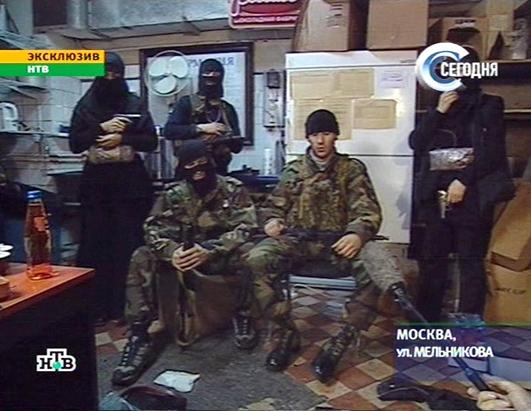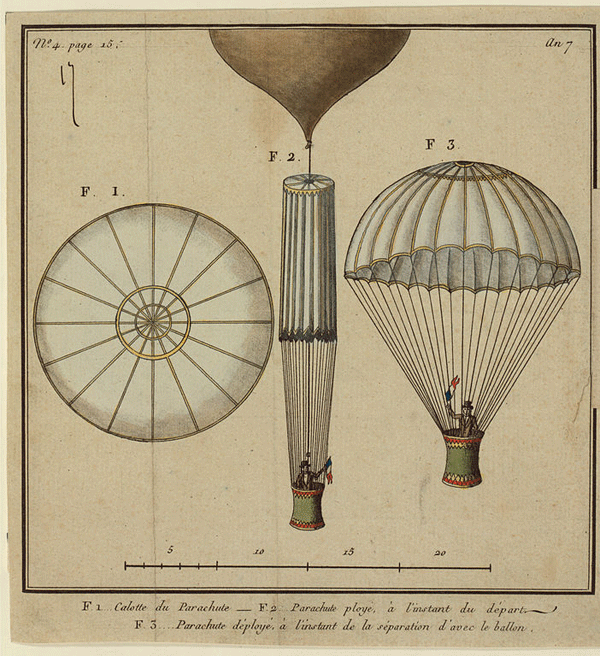Movie Reviews
Hip, heartwarming ‘Zootopia’ shows how far House of Mouse has evolved
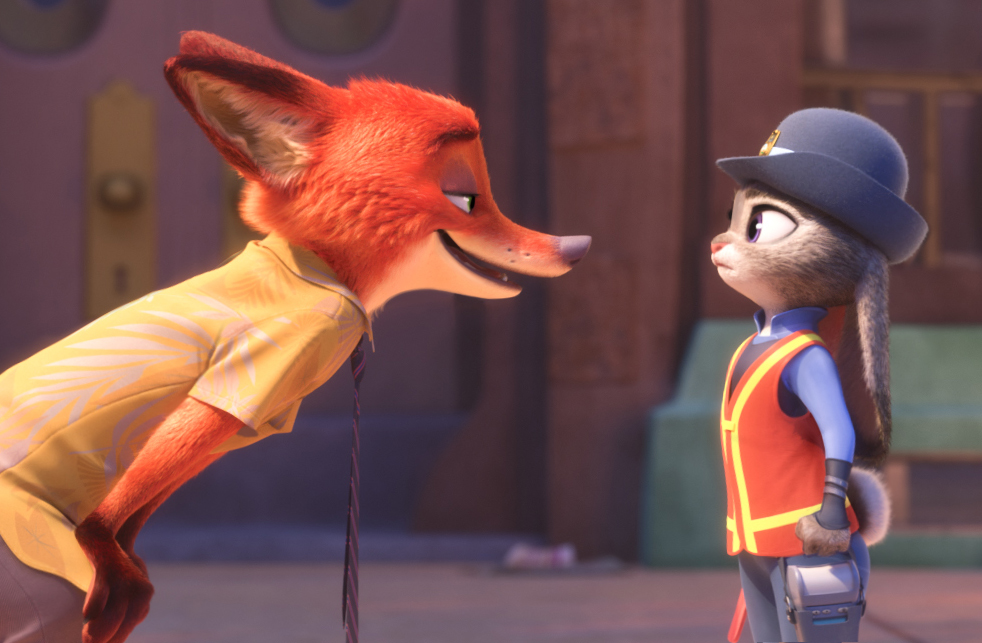
Zootopia
Starring the voices of Gennifer Goodwin & Bradley Cooper
Directed by Brian Howard, Rich Moore and Jared Rush
PG
A little girl dreams of leaving her rural hometown, moving to the city, becoming something no one else has ever been and making the world a better place. Sounds like a cliché, you say. Well, maybe—except in Zootopia, the little girl is a bunny, she wants to be a cop, and the city is full of other animals, but no people.
And there’s this: Rabbits are “prey,” like 90 percent of the population of the mammal metropolis of Zootopia, which is also home to predators—lions, tigers, wolves, foxes, jaguars. But over the centuries, prey and predators have evolved past their primal, biological instincts and learned to coexist…mostly.
And Zootopia, the latest Disney film, shows just how far the House of Mouse has evolved from dreamy prince-and-princess fairy tales of decades past. There’s bold new energy and excitement coursing through the studio, and it’s everywhere in this hip, ingenious, wildly creative tale full of wit, emotion and a message of inclusion, understanding and diversity.
To see where the movie gets its mojo, start at the top. Co-directors Brian Howard and Rich Moore’s credits include Disney’s Tangled, Bolt and Wreck-It Ralph as well as The Simpsons.
The smart, super-sharp story (Jennifer Lee, one of the writers, won an Oscar for Frozen, and Phil Johnson wrote the new Sacha Baron Cohen comedy The Brothers Grimsby and the underrated Cedar Rapids) begins with the departure of buoyantly optimistic Judy Hopps (Ginnifer Goodwin) from pastoral Bunnyborough for the teeming Xanadu of Zootopia, where she aspires to become a police officer, the city’s first bunny cop. She does, and quickly hops smack into some deep-rooted prejudice, fears and stereotypes.
An elephant refuses to serve a fox in his ice cream parlor; a tiger is told, “Go back to the forest, predator!” It’s no stretch to substitute racism, sexism and other “isms” for the “species-ism” that Judy finds separating animals that are otherwise friends, neighbors, coworkers and fellow citizens.
After Judy encounters Nick Wilde (Jason Bateman), a sly fox who makes his living running small-time scams and hustles, she soon must enlist his help investigating a mysterious case that’s baffled the police chief (Idris Elba, a blustery cape buffalo).
To say much more about the plot—which deepens and thickens considerably—would give away its many delights. The animal animations are outstanding, and the computer artists create special-effect magic melding the menagerie with the personalities of the actors—J.K. Simmons as a lion, Jenny Slate as a sheep, Tommy Chong (of Cheech & Chong) as a “naturalist” yak, pop star Shakira as a sexy gazelle (who sings the movie’s theme song, “Try Everything”).
The movie is a visual feast full of fun, suspense, surprise and adventure. It delivers its uplifting, more serious theme of unity and togetherness in a way that will rarely feel preachy or ponderous for kids. Grownups will keep busy tracking the dozens of pop-cultural riffs, sight gags and in-jokes, including meta-references to other Disney flicks and nods to classic Hollywood, like an especially clever Godfather scene and one of the best cop-doughnut jokes in any movie, ever.
From a talking mouse mascot to a flying elephant and 101 Dalmatians, Disney has always had a thing for animals. In Zootopia, they’re not only running the show, they’ve taken over the world. And they’ve got a very important, oh-so timely message for us all.
—Neil Pond, Parade Magazine
INTERMISSION
‘The Accountant’
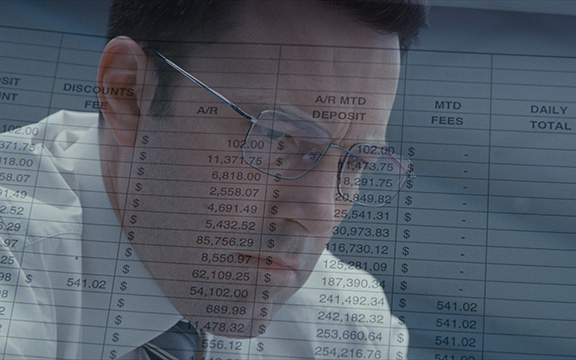
The Accountant
Starring Ben Affleck, Anna Kendrick & J.K. Simmons
Directed by Gavin O’Connor
R
In theaters Oct. 14, 2016
“Do you like puzzles?” veteran U.S. Treasury director Ray King (J.K. Simmons) asks newbie analyst Marybeth Medina (Cynthia Addai-Robinson) as he introduces her to one last big, baffling case he wants to crack before he retires.
King wants to reel in the mystery man behind an international string of dirty-money laundering, an American who seemingly moves with ease through the slime of the world’s underbelly of gangsters, cartels and drug kingpins as well as regular billionaire businessmen who need to tidy up their “financials” quietly and quickly—and H&R Block is out of the question. King calls him simply The Accountant.
“Who survives this kind of clientele?” King muses. “Coming in cold, cooking the books and getting out alive?”
Puzzles play a significant role in The Accountant, which starts out with a familiar cops-and-crooks, espionage-movie feel but quickly corkscrews into something with more twists, turns—and pieces.
Ben Affleck plays Christian Wolff, a mathematical savant whose bland “day job” as a nondescript, pencil-pushing accountant is his cover—his disguise—for wide-ranging contract work, zipping around in his Chevy pickup and his totally tricked-out 34-foot-long Airstream trailer. Because he ventures in and out of some dicey, dangerous situations, Wolff has also developed a highly specialized skillset in other areas, too.
When things take a turn for the worse or run afoul of his strict moral/ethical code, he does whatever it takes to set them straight. Bullets fly, blood flows, bodies crumple. He’s like a laser-focused cyborg, a walking lethal weapon—a hulking superhero without a costume.
In fact, his “origin story,” told in flashbacks, might remind you of how Bruce Wayne became Batman (another role, as you probably know, currently played by Affleck in DC’s big-screen franchise) or how other superheroes got started down their paths.
When we first meet young Christian as a boy, he’s working on a jigsaw puzzle.
But here’s where The Accountant takes its first turn. Christian has autism, which explains much about how he grew up and became gifted with numbers, but not so tuned in to people. There’s a whole subplot about how his domineering military dad (Robert Treveiler) further shaped and steeled—rather than coddled—him, helping shift his neurological condition from a liability to an asset.
A stint at a minimum-security prison introduces Wolff to an organized-crime bookkeeping snitch (Jeffrey Tambor) who takes him under his wing, teaches him basic socialization skills and schools him in the “dark-money” arts.
When Wolff is hired to find the source of $62 million leak at a high-tech robotics firm, it puts him and a perky young employee, Dana (Anna Kendrick), on the hit list of an assassin (Jon Berthal) and his crew hired to stop them and cover their tracks.
The original screenplay, by Bill Dubuque (who also wrote The Judge), craftily keeps you guessing—although some viewers will probably see the movie’s biggest “surprise” twist coming long before it arrives—and plants several puzzle pieces along the way to be picked up and set in place later.
In the middle of the action is another story entirely, a tale of family, siblings, daddy issues, kids who are “different,” and the relationship between Wolff and Dana, which doesn’t necessarily go where another, more conventional movie might have taken it.
It’s so cannily drawn in its characters, backstory and detail, it sometimes feels like the pilot for a new TV series or the setup for another movie. I guess we’ll have to wait and see: Where The Accountant will turn up is a puzzle with a piece that’s always missing.
—Neil Pond, Parade Magazine
INTERMISSION
All Aboard

The Girl on the Train
Starring: Emily Blunt, Hailey Bennett & Rebecca Ferguson
Directed by: Tate Taylor
R
“My husband used to tell me I have an overactive imagination,” says Rachel (Emily Blunt), watching the scenes of New York’s Hudson Valley go by as she stares out the window of the train she takes on her daily commute into the city.
Those scenes, that train and that “girl”—Rachel—drive the drama in the highly anticipated big-screen adaptation of British author Paula Hawkins’ 2015 thriller, which has sold some 11 million copies worldwide.
After her divorce, Rachel spiraled even deeper into her alcohol-soaked resentment—and it tortures her every day when the train passes her old house, now occupied by her former husband, Tom (Justin Theroux), his new wife and former mistress, Anna (Rebecca Ferguson), and their new baby daughter.
But it’s another house, and another set of occupants, that really intrigues Rachel. A beautiful young blonde woman (Hailey Bennett) and her adoring husband (Luke Evans) seem to be so obviously, passionately, completely in love. Sipping on vodka as the train zips by, morning and night, Rachel fantasizes about them, and especially about her. “She’s what I lost,” she muses. “She’s everything I want to be.”
The young woman’s name is Megan, and she works as Anna and Tom’s nanny—and loathes it.
As Rachel’s bitterness about Tom and Anna grows, her voyeuristic beguilement with Megan intensifies when she sees her in the embrace of another man, triggering Rachel’s memories of her own husband’s unfaithfulness. One evening Rachel goes on a drunken tirade about Anna the “whore,” takes the train to her neighborhood, but then blacks out—and wakes up the next morning covered in mud and blood.
And Megan has disappeared—or worse. When Allison Janney steps in as a homicide detective, it becomes a murder case. (Did the screen suddenly pick up a stream of CSI: Westchester County or something?) Did Rachel do it? She honestly doesn’t remember. And as blurry as her memory is, she wants to find out the truth, as twisted as it might turn out to be.
Tate Taylor—who also directed The Help (2011), another drama with a powerful female ensemble—builds the mystery by toggling between Rachel, Megan and Anna and each of their stories, going backward and forward in time to pick up pieces of the fractured, fragmented puzzle.
The performances are all super-solid, especially from the three women playing the triad of females in various states of personal misery and psychological abuse; as the movie takes us deeper into their stories, we see how they all connect, interweave and eventually collide. It’s about secrets, lies, loneliness, love, infidelity, rage, motherhood, things that aren’t always as they seem, and layers and layers of buried hurt and loss that finally come frothing to the surface, spilling into the light. The shocking conclusion splashes out dark, red and juicy—a catharsis that taps a wellspring of pent-up emotions.
Emily Blunt is an extremely versatile actress who’s done musicals (Into the Woods), comedy (The Devil Wears Prada), sci-fi (Edge of Tomorrow, Looper), family flicks (The Muppets), fairy-tale fantasy (The Huntsman: Winter’s War) and action (Sicaro). Now she’s landed a role that will get her even more serious mainstream attention. For her, especially, this Train is just the ticket.
—Neil Pond, Parade Magazine
INTERMISSION
Bracing, provocative ‘Birth of a Nation’ resonates with righteous unrest
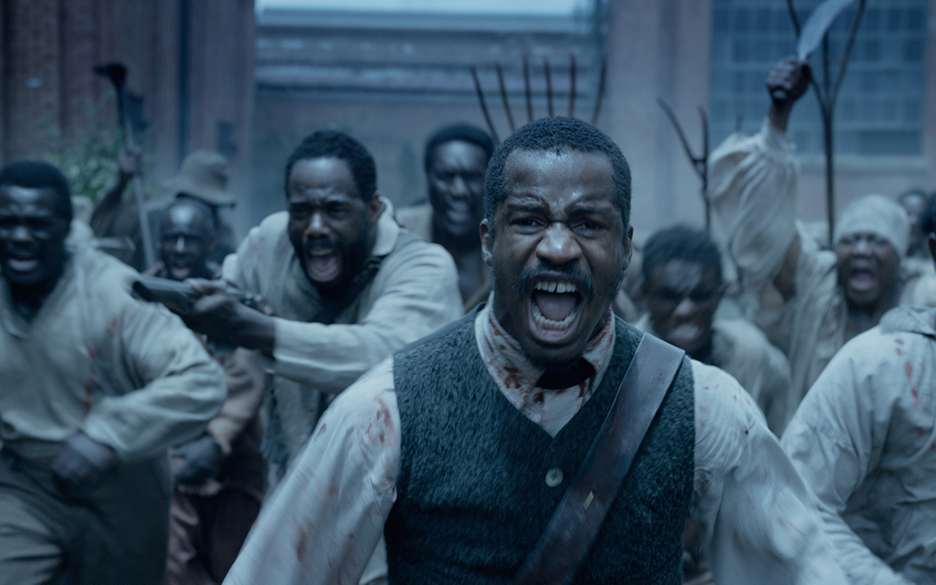
The Birth of a Nation
Starring Nate Parker, Armie Hammer & Penelope Ann Miller
Directed by Nate Parker
R
In theaters Oct. 7, 2016
In 1831, 31-year-old Nat Turner led a slave uprising in Virginia that resulted in the deaths of more than 50 white men, women and children, and the retaliation of white mobs and militias that killed some 200 blacks—including many who were not involved in the rebellion.
A “literate” black who could read and write, Turner grew up on Bible stories and later held worship services for his fellow slaves. He eventually came to believe that God had finally seen enough of the injustices of slavery, and was calling him to lead a slave army on a march of vengeful, wrong-righting insurrection.
When a solar eclipse darkened the sky over the cotton fields one day, Turner knew he’d seen his sign—he’d gotten his “go” signal. The timing, as they say, was right.
The timing was right for director and star Nate Parker, too, when he opened his movie about Nat Turner earlier this year at the Sundance Film Festival. The Birth of a Nation was a smash, a stunner, a shocker. Landing smack in the middle of the #OscarSoWhite controversy—about the lack of diversity among the 2016 Academy Awards nominees—it was a bracing, provocative blast of black-powered, top-to-bottom talent, and a topic, that couldn’t be ignored.
And it wasn’t. Fox Searchlight forked over $17.5 million for the distribution rights, a Sundance record, to get the film into theaters by the end of the year.
The film also recently opened the 10th annual International Black Film Festival in Nashville, Tenn., just ahead of its wide theatrical release.
The Birth of a Nation is a powerful piece of filmmaking, and a mighty impressive work, especially as Parker’s debut as a director. It takes a little-known event from America’s shameful past and elevates it to rousing, epic proportions. Both in front of and behind the camera, Parker shows the humanity as well as the horrors of slavery in the antebellum South, and the evils of an entire economic system built upon the systematic exploitation of a population for profit, regardless of the “kindness” or cruelty of any individual master, landowner, merchant or anyone else who benefitted.
Armie Hammer plays Turner’s second-generation master, Samuel Turner, whose benevolence is eclipsed by his desire to keep his estate financially secure and reputable—at whatever the cost. Penelope Ann Miller is Samuel’s mother, who teaches young Nat to read, which has enormous repercussions. Jackie Earle Haley is a sadistic slave hunter. Gabrielle Union portrays Esther, a slave wife forced to spend an evening as “entertainment” for one of Samuel Turner’s drunken guests.
Yes, it’s sometimes hard to watch—to see Turner tied to a post and horsewhipped to a pulp, to watch a little white girl lead a little black girl around with a rope “leash” around her neck, to witness a slave get his teeth get bashed out with a hammer. And a couple of—pivotal—rape scenes are particularly discomforting, given how the movie has reactivated the spotlight on Parker and his screenwriting collaborator Jean Celeste and the charges that were brought against them in 1999 as college students that they raped a fellow student; Parker was acquitted, the charges were dropped on Celeste after he appealed, and the woman who accused them committed suicide.
Different audiences will see this movie through different prisms, quite obviously. Some people won’t want to see it at all, for various reasons. Given the inflamed, highly polarized state of affairs across the nation, the Black Lives Matter movement and protests about police treatment of blacks, racial profiling, our national anthem and criminal injustice, the film resonates with a righteous unrest that rings far beyond events that happened 175 years ago.
“They’re killin’ people everywhere for no reason all than bein’ black,” says Turner’s wife, Cherry (Aja Naomi King).
In so many ways, the timing for Parker’s film about Nat Turner feels so right, and so right now.
—Neil Pond, Parade Magazine
-

 NEWS2 years ago
NEWS2 years ago2 hurt, 1 jailed after shooting incident north of Nocona
-

 NEWS1 year ago
NEWS1 year agoSuspect indicted, jailed in Tia Hutson murder
-

 NEWS2 years ago
NEWS2 years agoSO investigating possible murder/suicide
-

 NEWS2 years ago
NEWS2 years agoWreck takes the life of BHS teen, 16
-

 NEWS2 years ago
NEWS2 years agoMurder unsolved – 1 year later Tia Hutson’s family angry, frustrated with no arrest
-

 NEWS2 years ago
NEWS2 years agoSheriff’s office called out to infant’s death
-

 NEWS2 years ago
NEWS2 years agoBowie Police face three-hour standoff after possible domestic fight
-

 NEWS2 years ago
NEWS2 years agoDriver stopped by a man running into the street, robbed at knifepoint




